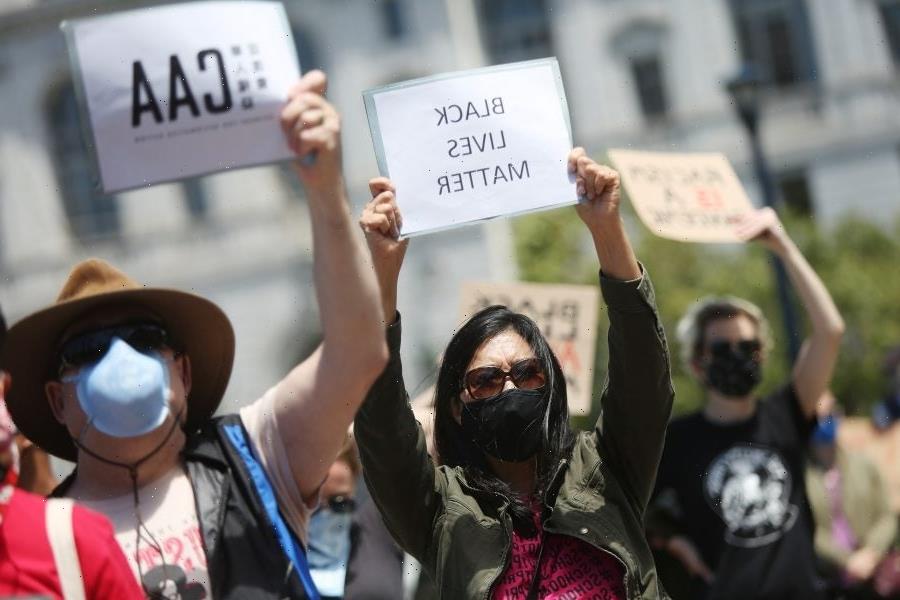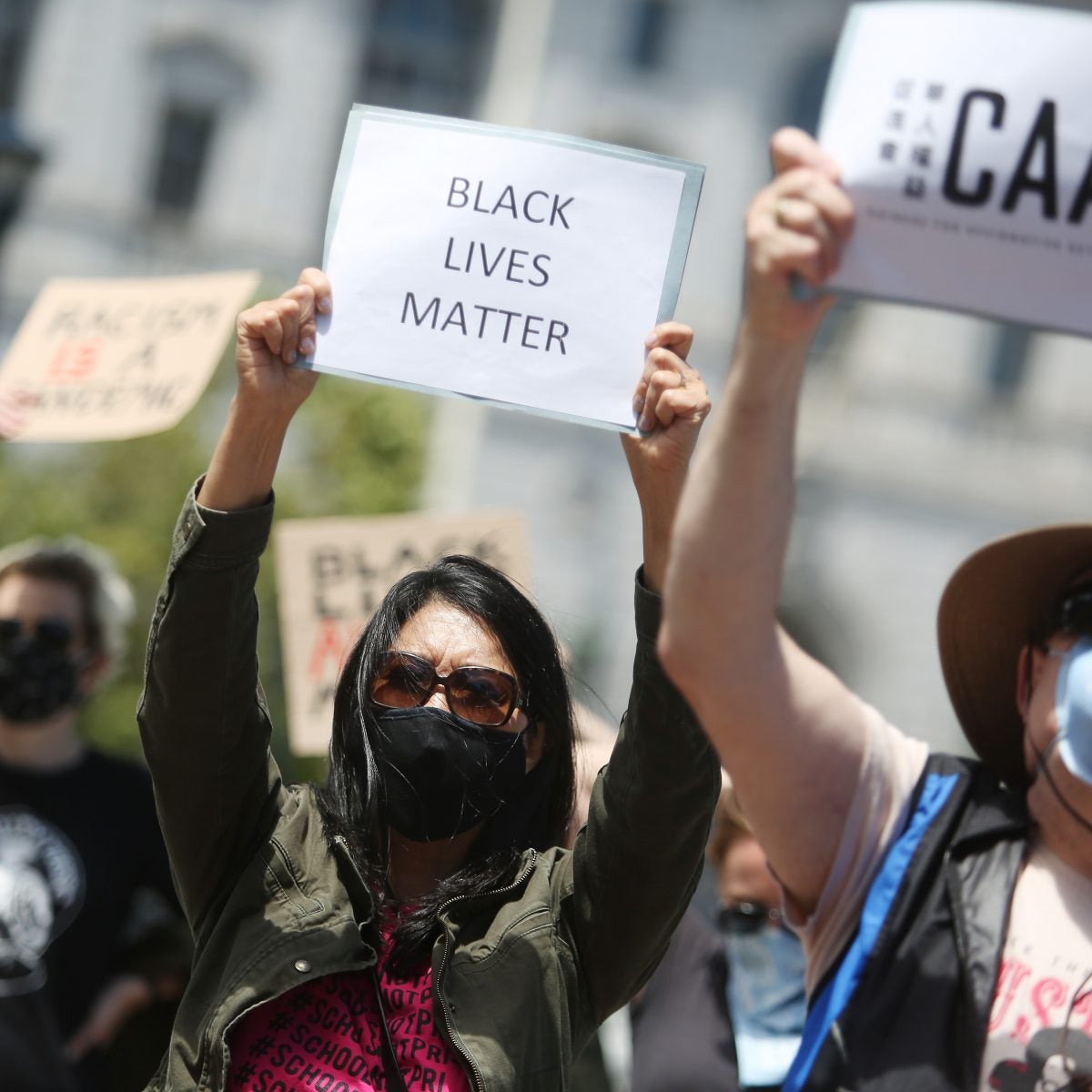May 1st marked the beginning of Asian-American and Pacific Islander Heritage Month. While Asian-Americans and Black Americans have had a complicated relationship, there is a dominating intangible force that keeps America divided. Activists have stressed the importance of alliances between the Black and AAPI community to defeat the white supremacist laws and practices on which the country was built and which continue to exact brutal violence and dehumanization of both groups today.
In a month when the country celebrates AAPI history and contributions, it’s helpful to be mindful of a shared struggle amid the uptick in violence against Asian-Americans over the past year. Wednesday in San Francisco, two elderly Asian women were stabbed near Market St. and they have been hospitalized. Last week, 29-year-old John Huynh was stabbed to death by a white resident in Bothell, Washington, just outside of Seattle. The suspect, 25-year-old Ian Patrick Williams fatally attacked Huynh after allegedly harassing him for not wearing a mask. At least ten people are reported to have witnessed the deadly assault. This followed the mass shooting and deaths of eight victims in Atlanta-area spas, six of whom were Asian women, last March. Although these attacks have not all been identified as hate crimes, the consistent rise of violence against Asian-Americans diminishes the speculation.
Following a string of anti-Asian attacks that first erupted in the Bay Area, Stop AAPI Hate began to track violence against the AAPI community. The alliance formed to provide resources and protection for Asian-Americans and Pacific Islanders while they navigate the xenophobia and heightened racism that has grown during the pandemic. The novel coronavirus created many environmental pressures for vulnerable groups, and the disease exacerbated the xenophobic reality that many Asian-Americans experience in the United States, including US politicians and government officials who have used ignorant terminology against those of Asian descent.
This harmful vernacular, the longstanding hypersexualization of AAPI women, and xenophobia have instilled fear and paranoia in the AAPI community, leading activists to encourage solidarity between communities. Last Sunday in Chicago, Asian-American and Black leaders of churches and civil rights organizations protested together to mourn the victims of the March mass shooting. They held eight minutes of silence in honor of each of the victims, marched throughout Uptown Chicago, and held a rally at the Buddhist Temple of Chicago.
“[W]hat happens to the African-American community is of paramount importance to the Asian-American community and so we care about others because we are all caught up in this single garment of destiny known as humanity.”
Rev. Raymond Chang
One of these leaders, Rev. Raymond Chang, also organized with Black activist and Chicago pastor, Tiana Coleman, against the spa massacre. “We organized a march between a historic Asian-American church, the Chinese Christian church that’s over 100 years old in Chicago, and a historic African-American church that’s over a hundred years old, the Progressive Baptist Church.” Rev. Raymond Chang said. “[We had] a simultaneous rally here in Chicago as the Atlanta one, and a thousand or two thousand people showed up.”
The co-founder of Stop AAPI Hate and co-executive director of Chinese for Affirmative Action, Cynthia Choi, is also working to build a cross-racial alliance. “I’ve gone through vicarious trauma because I’ve been reading all of the incident reports, talking to victims and survivors of violence and AAPI hate. The Atlanta-area shootings put me over the edge for lots of different reasons, but I’m especially inspired by how we are all choosing to respond to this time,” she said.
Based in San Francisco, Choi was at the forefront of the fight against Asian-American violence when she first heard of the attacks, specifically those targeting elders in her local area. Among them was a 91-year-old man who was killed on impact after being shoved to the pavement. Choi has focused on creating more racial equity in lower-income districts in San Francisco by being close allies with other vocal Black organizations.
Rev. Chang, who is a member of the Stop AAPI Hate coalition, has been an important figure in the Midwest and engages in dialogue with residents of majority-Black neighborhoods. He is also a community leader in a faith-based movement in Chicago, where he works closely with Black organizations against the rampant xenophobic racism in the United States. Both he and Cynthia Choi acknowledge the dangers of the “model minority” myth and work to debunk it, in part by building grassroots awareness of how it materialized in the West and ultimately harms people of Asian descent.
“The racism that Asian-Americans experience is both connected to and also different than the racism that other communities of color experience. We’re all racialized in different ways…which leads to a misunderstanding between racialized communities that needs to be uncovered, because… [that racism] is a direct result of white supremacy and colonial forces,” Chang said.
There are also similarities, including the ways the federal government has othered both groups by denying citizenship to Chinese immigrants through the Chinese Exclusion Act and only granting Black people citizenship after centuries of enslavement in the U.S. “If we aren’t mindful and aware of how our communities have been pitted against each other throughout history, we can unintentionally perpetuate white supremacy by not working together and engaging in solidarity efforts,” Chang added.
Chang has also connected with Martin Luther King, Jr.’s daughter, Bernice King. They discussed what inspired Dr. King to become one of the most influential civil rights leaders in history. “She said that Martin Luther King, Jr. was a pastor first, and that was what drove his civil rights activism and his efforts.” After Chang’s eye-opening conversation he explained, “what happens to the African-American community is of paramount importance to the Asian-American community and so we care about others because we are all caught up in this single garment of destiny known as humanity.”
Outside of the Stop AAPI Hate organization, Choi primarily focuses on having intimate conversations with new Bay Area-based Black initiatives like MegaBlack SF to directly collaborate with Black leaders. “There has been a huge focus on hate crimes and the conflation of violent incidents. Victim services should make sure that we focus on prevention and intervention and center[] a lot of this work around racial solidarity and education, starting with our schools,” Choi adds. “This is a result of white supremacy… [and] social conditioning, so we’ve had a long-standing commitment to addressing this solidarity issue locally.”
Source: Read Full Article






